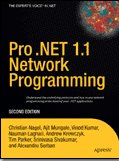A short list of tools for load testing:
- BrowserMob – Free Load Testing Tool
BrowserMob uses real browser users for website load testing, providing better AJAX support, clearer reporting of errors and an experience that more accurately mimics that of the real user. Run concurrent tests on your website with real browsers, not simply HTTP requests, and catch errors that other low cost providers miss. - The Grinder – Generic Jython Load Tester
The Grinder uses the Java implementation of Python (Jython), which is a script-only, feature rich load testing platform. It is possibly the most powerful lightweight free load testers on the market, but also the most difficult to master. No GUI to speak of, very little in the way of examples, but it has a terrific FAQ. It isn't useful for front end automation, but otherwise The Grinder is flexible and infinitely useful if you can master it. This is the programmer's preferred load testing tool. - JMeter – Graphical Load Tester
JMeter, the most downloaded free load testing software on the planet. It has a GUI written in Java, which means you can use it on just about any operating system, so your testing is truly portable. It has a flexible scripting language, as well as plugins for all sorts of strange test scenarios. Best of all, it is one of the most completely documented load testing applications out there, with ample tutorials and great community support. It is useful for just about every test type you'll eventually run into. - OpenSTA - HTTP and HTTPS Heavy Load Tester
OpenSTA is one of the most flexible load testing tools on the market today. Not only can it use recorded scripts and play them back, but it can convert the recorded macro into a powerful script that is easily edited and injected as a hypertext stream. OpenSTA is therefore best of both worlds, and is suitable for just about every form of load testing. - SOASTA – Cloud Testing
SOASTA leverages the cloud to offer on-demand load & performance testing, enabling you to test the real-world performance of your web apps. This functional testing can either be in separate from SOASTA’s load testing runs, or performed while an app is under simulated load to test how it works under pressure.





